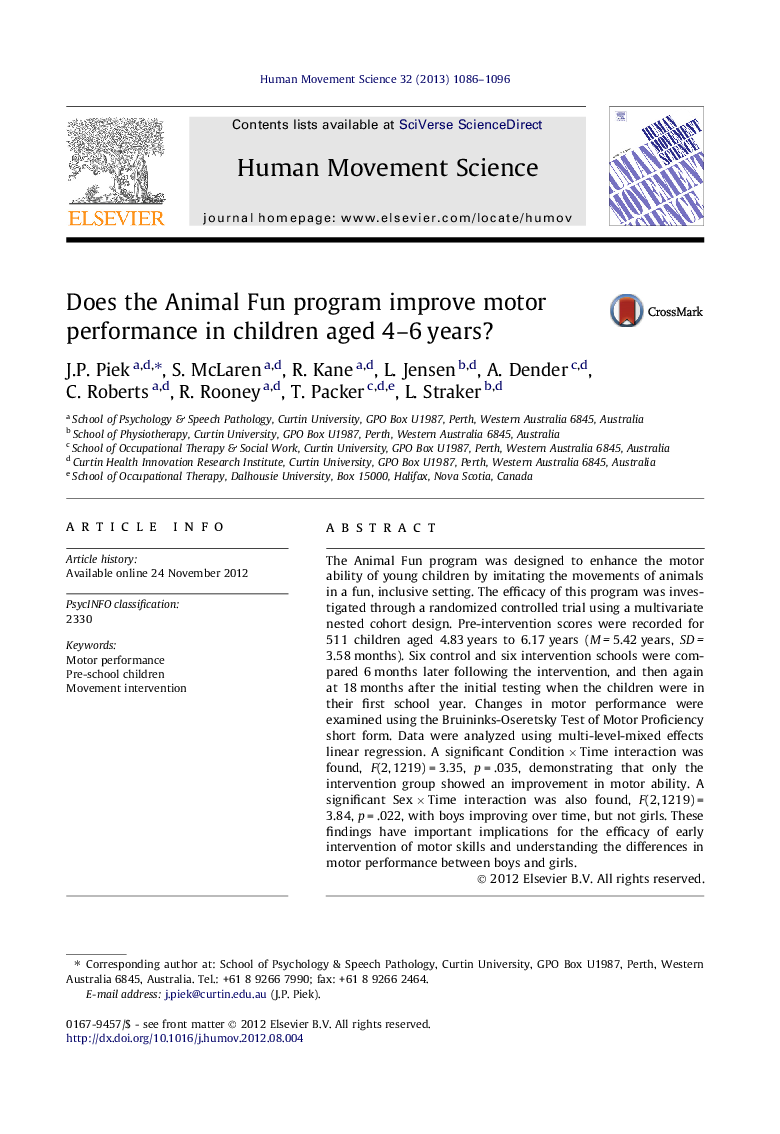| Article ID | Journal | Published Year | Pages | File Type |
|---|---|---|---|---|
| 928357 | Human Movement Science | 2013 | 11 Pages |
The Animal Fun program was designed to enhance the motor ability of young children by imitating the movements of animals in a fun, inclusive setting. The efficacy of this program was investigated through a randomized controlled trial using a multivariate nested cohort design. Pre-intervention scores were recorded for 511 children aged 4.83 years to 6.17 years (M = 5.42 years, SD = 3.58 months). Six control and six intervention schools were compared 6 months later following the intervention, and then again at 18 months after the initial testing when the children were in their first school year. Changes in motor performance were examined using the Bruininks-Oseretsky Test of Motor Proficiency short form. Data were analyzed using multi-level-mixed effects linear regression. A significant Condition × Time interaction was found, F(2, 1219) = 3.35, p = .035, demonstrating that only the intervention group showed an improvement in motor ability. A significant Sex × Time interaction was also found, F(2, 1219) = 3.84, p = .022, with boys improving over time, but not girls. These findings have important implications for the efficacy of early intervention of motor skills and understanding the differences in motor performance between boys and girls.
► The Animal Fun program significantly improved motor performance. ► Boys’ motor skills improved in the transition from pre-school to year 1 of school. ► Motor performance improved regardless of initial motor proficiency.
